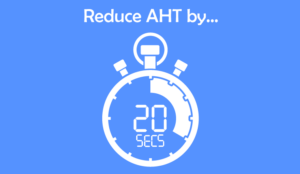Disciplinary issues aside, contact centres will always have some consistently lower performers in their teams – perhaps they are still new, struggling with process changes, or just never quite reached their full potential.
That’s why we’ve asked our consultants panel for their top tips and advice for contact centre leaders who want to give their lowest performers a bit of a boost to help them reach their full potential.
What is Bottom Quartile Management (BQM)?
Bottom Quartile Management refers to a management approach or strategy that focuses on identifying, evaluating, and addressing the performance of employees or business units that fall within the bottom 25% (the lowest quartile) in terms of performance metrics, productivity, or other relevant criteria.
Key Aspects of Bottom Quartile Management
- Performance Identification
- Metrics
- Data Collection
- Evaluation and Analysis
- Analysis
- Feedback
- Intervention and Improvement
- Training and Development
- Performance Plans
- Resource Allocation
- Accountability and Consequences
- Monitoring
- Accountability
- Consequences
- Continuous Improvement
- Feedback Loop
- Organizational Learning
Ways to Improve Your Bottom Quartile Management
Here are 11 ways to improve your bottom quartile management:
1. Have a ‘Buddy Contest’ Instead of a ‘First Past the Post’ Competition

‘First past the post’ incentives only really motivate the people that can win these contests, which means that most of your agents lose interest very quickly. A better approach to build engagement and to improve the performance of your lower-quartile agents is by leveraging team incentives or contests.
One of my favourites is a ‘buddy contest’ where you rank the agents based on performance metrics and create the teams by buddying the top performer with the bottom performer, second best with second from the bottom and so forth. The results are then tracked and calculated based on the combined performance of both teammates.
This has the benefit of placing lower performers in a contest that they can be successful in. It also provides the opportunity for a top performer to mentor a poorer performer.
Contributed by: Colin Taylor, CEO of The Taylor Reach Group, Inc
2. Show Them Examples of Good Soft Skills in Action
Another challenge is knowing WHAT to say but struggling with HOW to say it. If your agents have communication (soft skill) gaps, training and coaching can help.
Work with them on wording, vocal tone, active listening, and empathy. Show them examples of how high-performing team members handled various customer scenarios. Demo and role-play situations with them too, so your agents become comfortable communicating with customers.
Contributed by: Mike Aoki, President of Reflective Keynotes Inc.
3. Don’t Let Statistics Tell the Entire Story

Your least productive agents might be the ones selling the most volume or creating the most advocates!
Reflecting on personal experience from when I worked on the phones, I was an agent who consistently completed the most contacts per shift.
I worked with a colleague who spoke very clearly, and her pace was slower than mine, so she was never the top contact taker.
But she never got complaints, I mean NEVER! I didn’t get many complaints, but when I did, they were about being monotone, or the customer didn’t feel listened to.
On the outside, if you compared contact numbers, she would be seen as an underperformer. Her numbers might not have topped the charts, but customers loved her.
Contributed by: Kim Ellis, Chief Learning Architect at Go Ginger Learning Solutions
4. Avoid “One and Done” Training

Call centre leaders should recognize that, in many cases, low performing employees are disengaged ones.
After your training, several employees perhaps feel undervalued and unappreciated, feeling that you don’t care enough about them, and so start offering the bare minimum customer service.
To turn this around, you also need to CARE for your people on an ongoing basis – rather than offering “one and done” training.
- COMMUNICATE openly, transparently, interactively, frequently, and continuously any information that your employees need and want to know.
- APPRECIATE the important roles and responsibilities of your employees.
- RECOGNIZE and offer accolades for individual accomplishments and acts of service to colleagues or customers.
- EMPOWER people to make the right decisions for themselves, your colleagues, customers, and their business.
Contributed by: Bill Quiseng, Chief Experience Officer at billquiseng.com
5. Give Them “Cheat Sheets”
Even agents with the right mindset and motivation can stumble if they lack product and process knowledge. You can discover this by reviewing their calls, emails, and chats to see if they give out incorrect information. Also, examine their hold times to see if they frequently put customers on hold to look up answers.
Once you spot the knowledge gaps, coach back to them. Help agents use your company’s knowledge base more effectively. Give them “cheat sheets” with commonly asked questions and answers to fill in knowledge gaps.
Contributed by: Mike Aoki, President of Reflective Keynotes Inc.
6. Harness the Power of Customer Feedback

An amazing, yet underutilized, way to make your employees feel valued is through the use of customer feedback.
Customer insight is also beneficial in creating a bespoke personal development plan.
Here are just three benefits of using customer feedback in your efforts to support an employee who needs a boost:
- Positive customer feedback can highlight your employee’s strengths, showing them the positive impact they are having on the customers they support, and building their confidence. Ideally, this should be visible in real time too. If your employee is feeling overwhelmed or worried, a great way to help turn their day around is to see the great feedback that the customer they just supported has left.
- Critical customer feedback can highlight personal development areas. Providing this insight to your employees to explain why they are being asked to develop their skills in particular areas provides clarity and understanding, which should better support their development journey.
- Deploying gamification around customer feedback is also a different way of motivating the team and highlighting success.
Contributed by: Katie Stabler, Founder and Director of Customer Experience at CULTIVATE Customer Experience by Design
7. Stay on Top of Your Knowledge Base
The secret to exceptional customer service lies in having a meticulously maintained and readily accessible knowledge base. It’s not just a matter of occasional review but a continuous commitment to accuracy and relevance.
When agents embrace product and service procedures and stay up to date with the latest information, they equip themselves to provide customers with top-notch service. This also includes being aware of performance targets and adhering to schedules.
Contributed by: Irina Mateeva, Founder of RightWFM
8. Tailor Your Approach and Set Realistic Goals
In every team, there’s a diverse range of performances. For contact centre leaders, the challenge is twofold: nurturing the quieter stars and addressing the complacency of the laid-back group.
Here are some strategies for success:
- Tailored coaching can be invaluable. Understand everyone’s unique challenges and strengths and adjust your guidance accordingly.
- Recognizing even the small achievements can significantly boost morale and motivation.
- Constructive feedback, combined with peer support, can foster growth and collaboration.
- Point-of-need training solutions can bridge knowledge gaps and enhance skills precisely when and where they’re needed.
- Setting realistic yet challenging goals is crucial, ensuring everyone knows what’s expected.
- Open communication channels allow team members to discuss challenges and seek guidance.
With the right strategies and support, every team member can be guided towards their best performance. As leaders, it’s your responsibility to ensure that the entire team is aligned and working towards collective success.
Contributed by: Kim Ellis, Chief Learning Architect at Go Ginger Learning Solutions
9. Help Them Understand the Importance of Customer Service

Does this poor performing agent understand the importance of customer service? Do they buy into the belief that great customer service involves fixing a problem AND fixing the customer relationship?
I once had an agent in my training class who thought customer service was merely fixing the customer’s problem and getting them off the phone.
That mindset generated low customer satisfaction scores. The key to fixing it was helping the agent understand that some customers want to hear empathy and reassurance from the agent.
10. Ask What Motivates Them (and What Doesn’t)
Why did that agent choose a contact centre role? Do they enjoy helping people? Do they want to advance within your company or industry? What motivates them? What engages them at work?
Ask questions to see where they want to progress in their career. Find out what they like about coming to work. Also, find out what they do not like about their current role (demotivators.) Use this information to help them become more engaged.
Contributed by: Mike Aoki, President of Reflective Keynotes Inc.

11. Maintain Your Process Adherence
Process adherence is a cornerstone of consistency and quality in customer service. To ensure that agents are following prescribed procedures, consistent monitoring and feedback are crucial. This can be accomplished through regular feedback loops and personalized coaching sessions.
Contributed by: Irina Mateeva, Founder of RightWFM
We have got some more great articles from the experts that you should read next:
- 25 Ways to Proactively Spot Your Customers’ Pain Points
- What Are the Main Call Centre Pain Points, and How Can They Be Solved?
- 35 Surefire Ways to Demotivate Your Best Agents
Author: Megan Jones
Reviewed by: Robyn Coppell
Published On: 13th Sep 2023 - Last modified: 23rd Sep 2025
Read more about - Call Centre Management, Agent Performance, Bill Quiseng, Colin Taylor, Employee Engagement, Irina Mateeva, Katie Stabler, Kim Ellis, Management Strategies, Mike Aoki, Performance Management



















